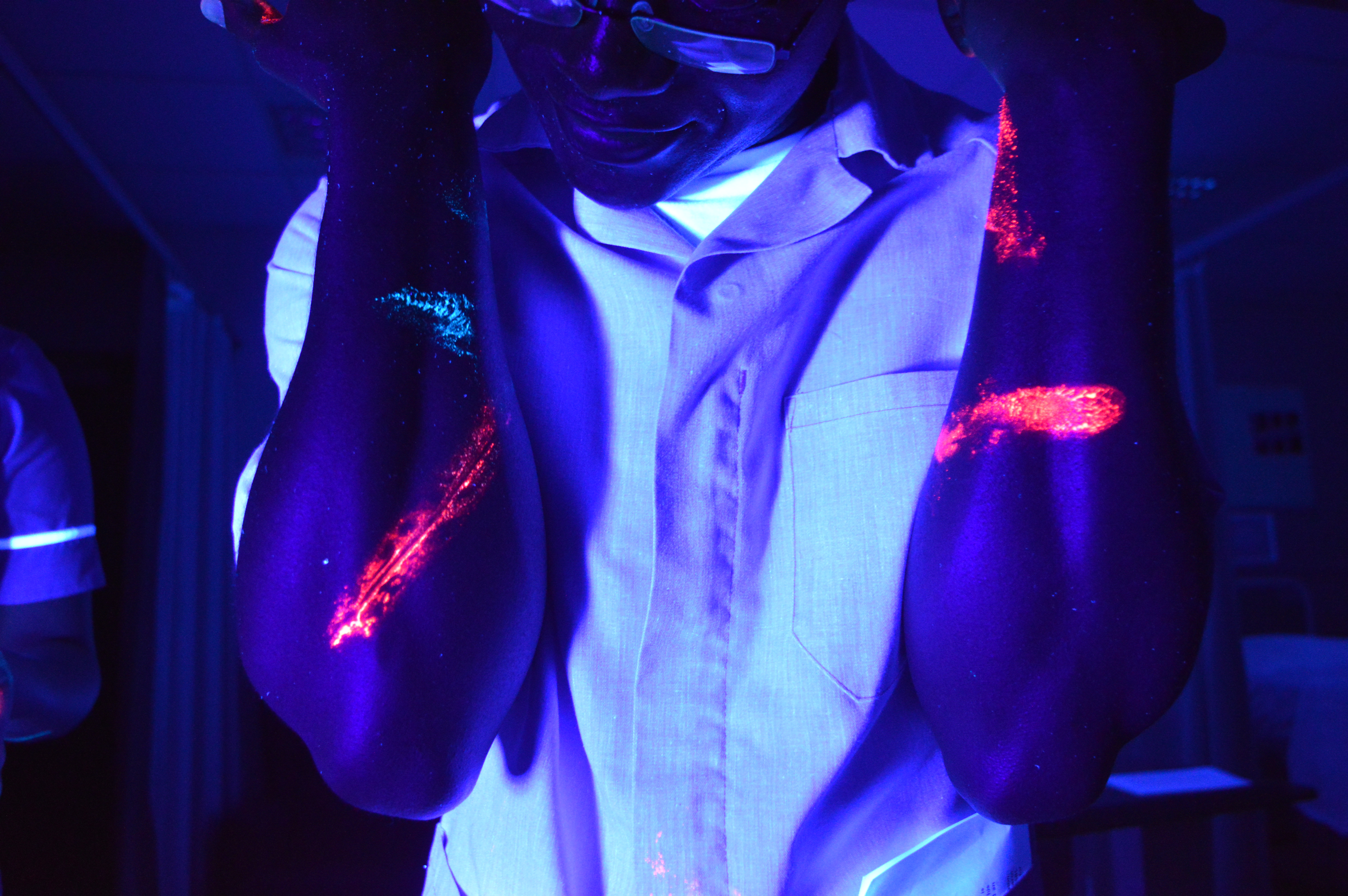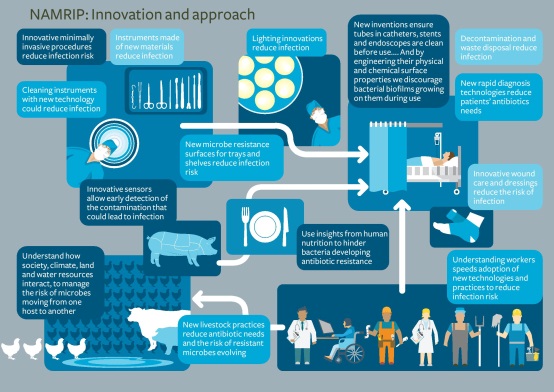‘Preventing the spread of infection in hospital care settings: Health professionals, the agency of microbes and imaging tracking technology’ – April – July 2016
This was a three-month pilot project funded by the EPSRC (Engineering and Physical Sciences Research Council), via NAMRIP (Network for Antimicrobial Resistance and Infection Prevention), University of Southampton. The project addressed the question of how nurses think, act, and respond in situations where there is the risk of spreading infection to their patient, and / or to themselves.
Working in a new collaboration across a number of disciplines, the project brought together microfluidic engineering technology with nursing studies and cultural geography expertise. It offered a novel approach to improve understanding of how health professional behaviour is formed in relation to experiences and representations of the risk of microbial life. Existing nursing studies recognise the challenges to changing behaviour that could improve patient’s chances of not contracting an infection. In their daily work health professional handle patients with various levels of infection, and respond to these through changing their level of personal protection during routine tasks.

Within cultural geography there is a body of work that explores how human practices are responses to the agency and representations of non-human’s including microbial life. Microfluidic engineering studies can map the mobility of human and microbial activities. Collaboratively these disciplinary approaches support the development of new understandings that are factors in reducing infection spread in hospital settings, and the development of a pedagogic video incorporating performance art.



